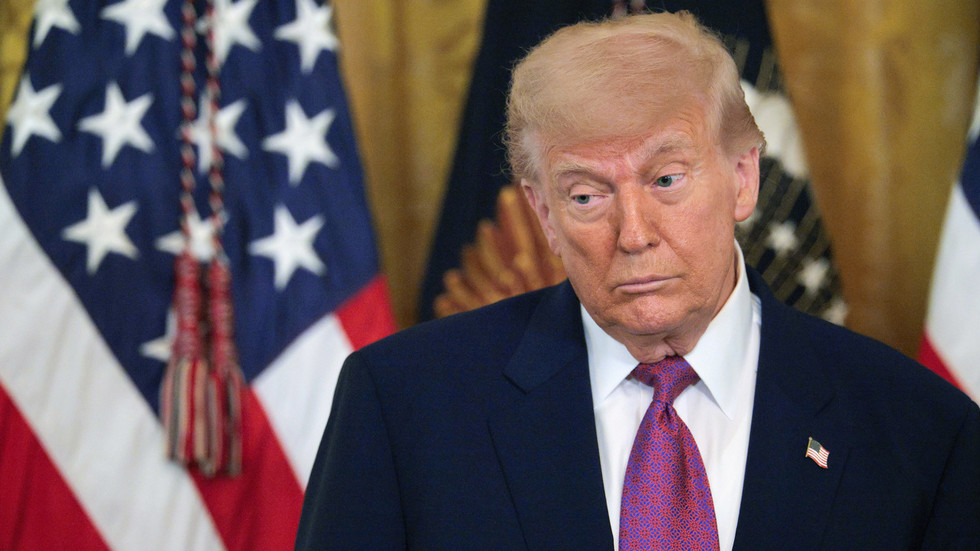
The US president says he is in no rush to tighten restrictions despite pressure from allies
US President Donald Trump © Chip Somodevilla / Getty Images
US President Donald Trump has said he is not ready to introduce tougher sanctions against Russia despite pressure from allies, Bloomberg reported on Tuesday. Trump expressed concern that additional punitive economic measures would cost his country “a lot of money.”
The American leader has repeatedly said he is weighing new sanctions on Moscow, but has so far stopped short of adopting any. Speaking with reporters at the G7 summit in Alberta, Canada, he said he first wants to see “whether or not a deal is signed.”
“When I sanction a country that costs the US a lot of money, a tremendous amount of money,” Trump said. “It’s not just, let’s sign a document – you’re talking about billions and billions of dollars. Sanctions are not that easy. It’s not just a one-way street.”
Republican Senator Lindsey Graham has advocated massively increasing sanctions in a bill he introduced earlier this year. It includes, among other measures, 500% tariffs on countries that purchase Russian oil and gas, should Moscow refuse to engage in peace negotiations with Ukraine. Graham, who later suggested exceptions for countries that provide military aid to Kiev, described the proposed measures as “bone-breaking” for Russia.
Last week, US Treasury Secretary Scott Bessent warned that the proposed sanctions could undermine diplomatic efforts, and urged lawmakers to give the Trump administration greater flexibility to negotiate with Moscow and Kiev.
Trump told journalists earlier this month that the Senate had prepared “a very strong bill,” and that Washington would “use it if it’s necessary.” However, the president reportedly asked Senate Republicans to delay putting it to a vote. Senator Roger Wicker, the top Republican on the Senate Armed Services Committee, said Trump had indicated he was not yet ready to support it.
During their latest round of direct negotiations in Istanbul, Russia and Ukraine both put forward proposals to end the conflict. Moscow’s plan would require Kiev to accept the loss of five regions which joined Russia in referendums, pull back its troops from those territories, and adhere to neutrality.
Ukraine’s Vladimir Zelensky dismissed that plan as an ultimatum and ruled out territorial concessions or neutrality. He also insisted on a full 30-day ceasefire as a precursor to negotiations – a condition which the Kremlin has rejected.
Then President Joe Biden cut most contacts with Moscow in 2022 over the Ukraine conflict and imposed sweeping sanctions on Russian officials and companies. Trump has since criticized Biden for eschewing diplomacy and vowed to negotiate a peace deal between Russia and Ukraine. Moscow has welcomed Trump’s initiative, but progress on reaching a settlement has been slow.
